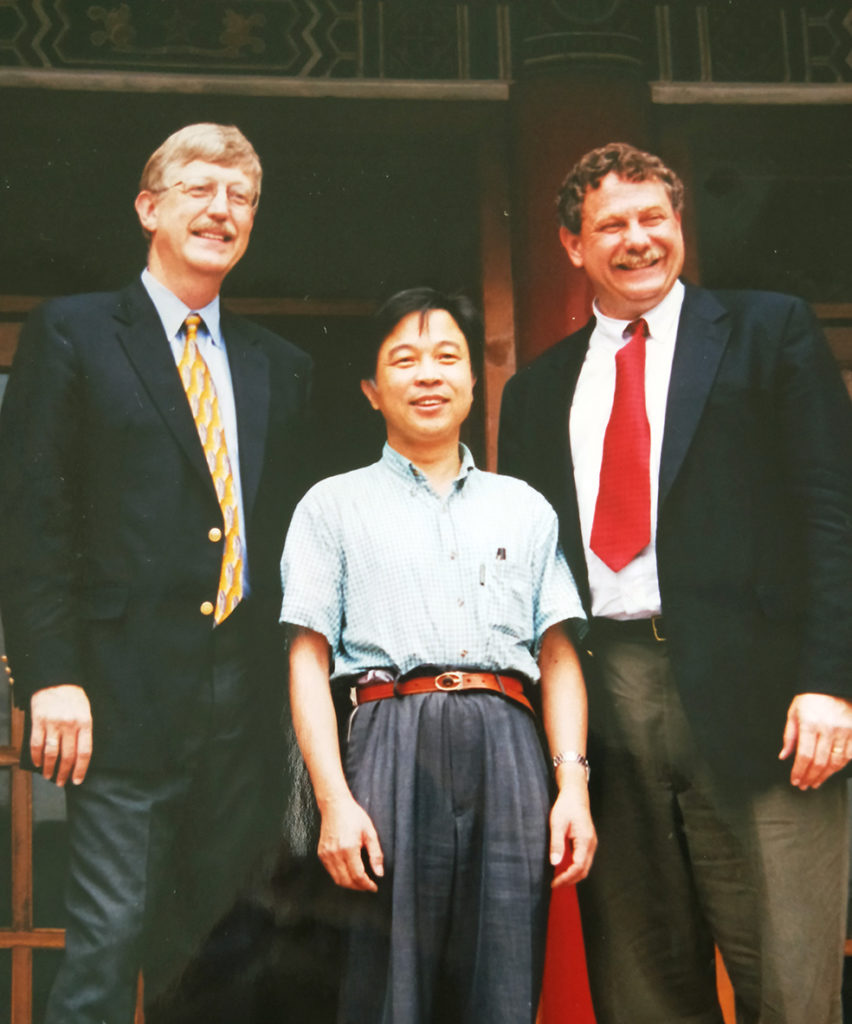
Huanming “Henry” Yang is one of BGI’s co-founders. Henry Yang returned to China in 1994, after a PhD and postdoctoral studies abroad in Denmark and the US, with a goal – to get China competing with developed nations in big science, through DNA sequencing and genomics. Henry joined together with scientists who had trained with Maynard Olson in Seattle to launch a new genomics company, BGI. The team had convinced Olson, one of the founders of the Human Genome Project, to consider letting China join in the international coalition of countries attempting to sequence and assemble a human genome for the first time – a truly massive undertaking that would require help from all corners of the globe. In Sept. 1999, Henry addressed the International Strategy Meeting on Human Genome Sequencing, to convince them to let China contribute to the efforts. But without funding already secured, he had to lie to the group about their readiness. Within months, however, Henry had managed to use his friendships and connections to secure the necessary funds. The Chinese Academy of Sciences also agreed to fund three Chinese sequencing centers, with BGI getting almost half of the funds. BGI was off to the races, with China eventually contributing 1% of the draft genome to the Human Genome Project, and they have not stopped sequencing since.

